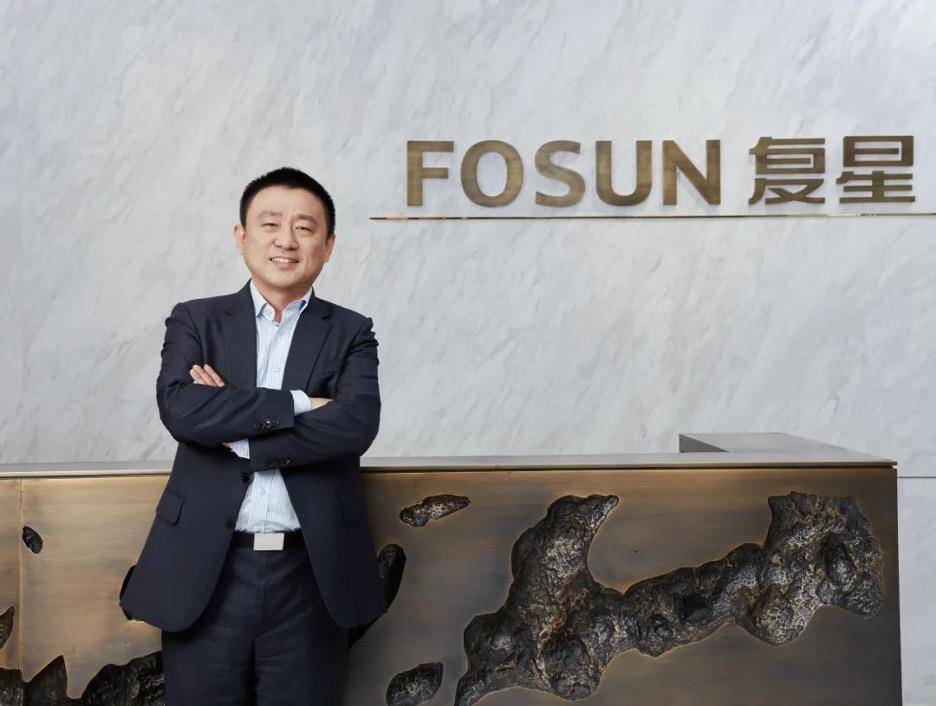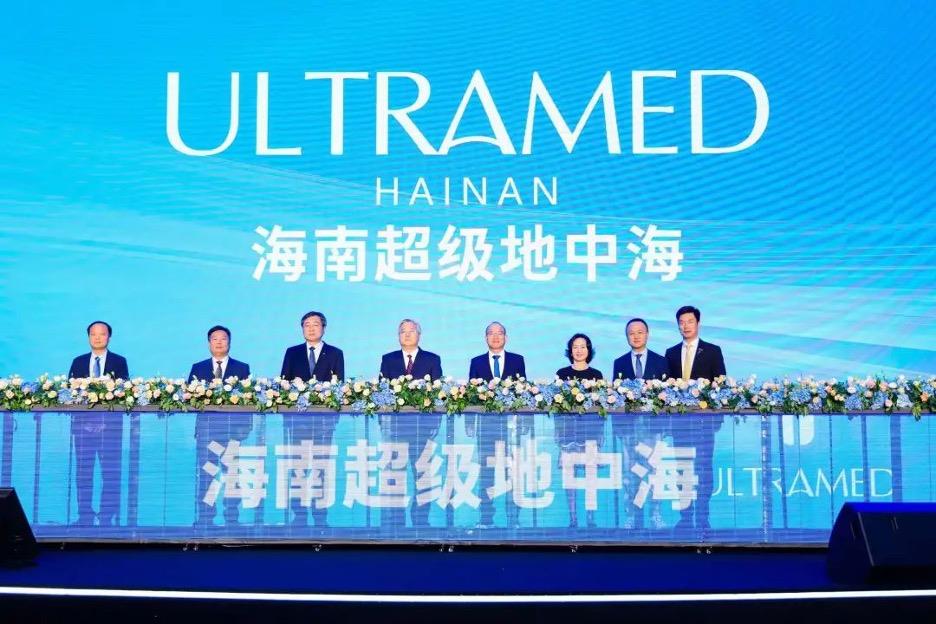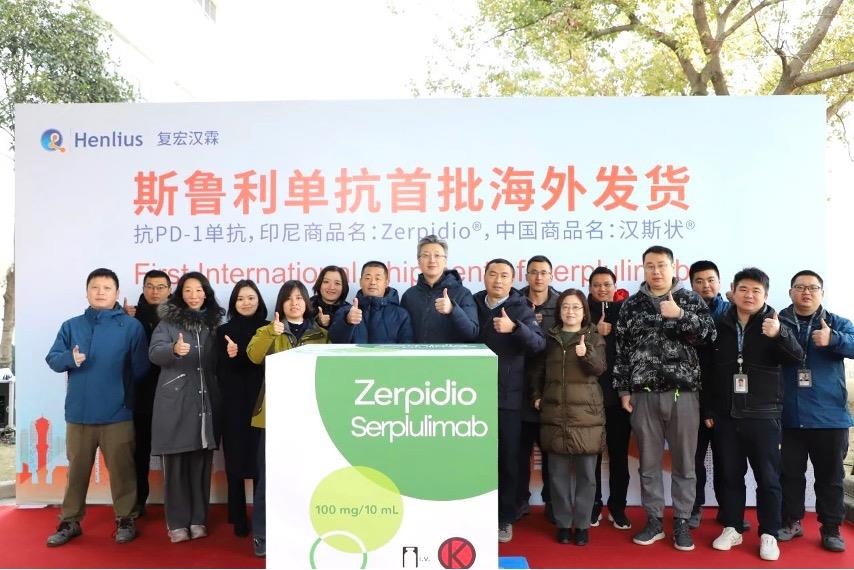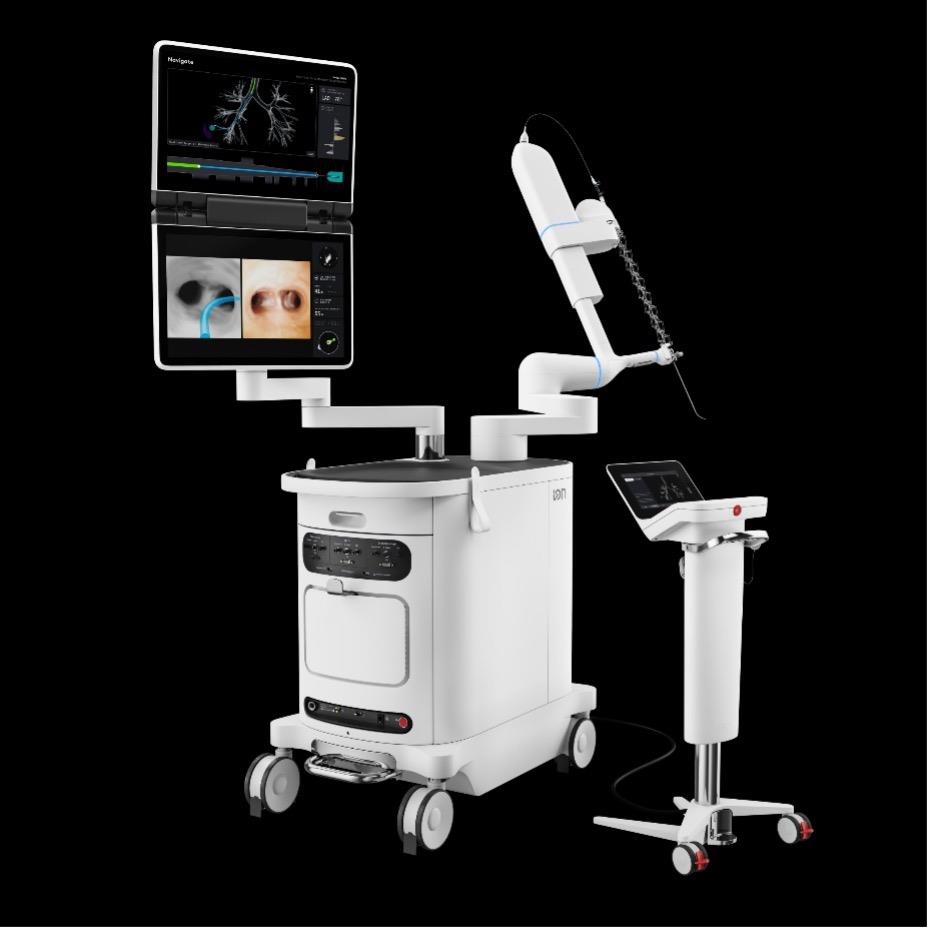Fosun Embraces New Paradigm of “Globalization” and “Innovation” to Drive Long-term Value Growth
The year 2024 was marked by both challenges and opportunities for Fosun International (HKEX stock code: 0656). In response to a complex external environment, the Group adopted a prudent strategy focused on “business streamlining, strategic advancements and exits, and balanced investment and divestment”, divesting from some asset-heavy projects and reducing financial leverage. In addition, it continued to “focus on core businesses” and deepened industry operations to effectively adapt to market changes. In an exclusive interview with Bloomberg Businessweek (Chinese Edition), Chen Qiyu, Executive Director and Co-CEO of Fosun International, delved into how Fosun International has embraced the new paradigm of “globalization” and “innovation”, pursuing progress amid global economic turbulence.

Chen Qiyu, Executive Director and Co-CEO of Fosun International
Focusing on core businesses and achieving balanced investment and divestment to unlock substantial potential in core industries
In 2024, amid a complex global economic environment, the two key indicators reflecting Fosun’s operational fundamentals remained strong. The Group’s total revenue for the year reached RMB192.14 billion, with the four core subsidiaries–Yuyuan, Fosun Pharma, Fosun Insurance Portugal and Fosun Tourism Group (“FTG”)–contributing 70.1% of the total revenue; industrial operation profit amounted to RMB4.9 billion, showcasing the effectiveness of Fosun’s focus on core businesses. During the results presentation, management stated that Fosun aims to achieve RMB10 billion in industrial operation profit, highlighting the substantial growth potential in its core industries.
Chen Qiuyu said that the Group optimized its capital structure through a deleveraging strategy focused on “business streamlining”. In 2024,the signed asset divestment amounted to approximately RMB17.5 billion at the group level, and approximately RMB30.0 billion at the consolidated level, further enhancing the balance sheet. Additionally, Fosun held RMB106.34 billion in cash and cash equivalents, indicating ample liquidity.
In recent years, Fosun has adhered to a strategy that emphasizes “focusing on core businesses and business streamlining” as well as “balanced investment and divestment, strategic advancements and exits”. While steadfastly divesting from non-core businesses, it has also made strategic “advancements” in its core businesses.
In the Health segment, Fosun Pharma increased its stake in Fosun Kairos to 100% in 2024. Fosun Kairos specializes in the research and development (“R&D”), manufacturing and commercialization of CAR-T cell therapy, a technology regarded by the medical community as having the potential to cure cancer. As of the end of 2024, Fosun Kairos’ first CAR-T cell therapy product, Yi Kai Da, had benefited more than 800 lymphoma patients in Chinese mainland. Moreover, it had been included in over 110 urban customized commercial health insurances and over 80 commercial insurances, with over 180 high-standard treatment centers established across 28 provinces and cities in China.

ULTRAMED Hainan project in Sanya was officially launched in 2024
In the tourism and culture business, Club Med achieved another record-breaking year in 2024, with business volume reaching RMB16.15 billion. In addition to Atlantis Sanya, Fosun’s ULTRAMED Hainan project in Sanya was officially launched in 2024; the proposal for the privatization of FTG was approved by a majority vote of FTG shareholders, allowing FTG to accelerate development with greater flexibility.
In the Wealth segment, the total premium income of Pramerica Fosun Life Insurance surged from RMB4,346 million in 2023 to RMB9,251 million in 2024, while Fosun United Health Insurance also experienced steady growth in premium income, and both companies achieved profitability.
Advancing the globalization strategy to accelerate the unlocking of overseas asset value
Fosun International’s strategic focus on global markets yielded significant results in 2024. The Group’s overseas revenue accounted for 49.3% of its total revenue, with a business presence established in more than 35 countries and regions around the world. Fosun’s global deployment will effectively help it hedge against macroeconomic volatility, while the Group’s increasingly robust global operational capabilities across its domestic and overseas core businesses will bolster Fosun’s profitability.

HANSIZHUANG, the world’s first anti-PD-1 monoclonal antibody approved for the first-line treatment of small cell lung cancer, independently developed by Henlius, was approved for marketing in the European Union in early 2025
Benefiting from the forward-looking internationalization strategy, Henlius, a subsidiary of Fosun’s Health segment, achieved overseas product sales revenue of RMB121 million in 2024, representing a substantial increase of 30.76% over the same period last year. Notably, Henlius’ innovative product, HANSIZHUANG, an anti-PD-1 monoclonal antibody, was approved for marketing in the European Union in early 2025.This milestone makes it the first and only PD-1 innovative drug approved for the first-line treatment of extensive-stage small cell lung cancer (ES-SCLC) in the European Union. Fosun has continuously strengthened its global pharmaceutical sales network by establishing marketing teams in Africa, India, the U.S., and the Middle East, while gradually expanding this network into markets such as South America, Southeast Asia, Japan, and South Korea.

Club Med La Rosière
In the Happiness segment, Club Med has also established a global presence with nearly 70 resorts in 26 countries and regions around the world, serving customers from Europe, the Americas and the Asia-Pacific region. Chen Qiuyu pointed out that as the global tourism demand continues to grow, there remains significant potential for further development in this business.
In the Wealth Segment, Fosun Insurance Portugal achieved growth in both domestic and international businesses in 2024, with total gross written premiums reaching EUR6,172 million and overseas revenue amounting to EUR1.84 billion. Through overseas expansion, the proportion of international business increased from less than 5% in 2014 to 29.8% in 2024. Chen Qiuyu highlighted that Fosun Insurance Portugal has made significant progress in South America and Africa, overcoming regional licensing and regulatory challenges, thereby laying a strong foundation for future expansion.
Chen Qiuyu particularly emphasized that the Group has unique globalization opportunities across various businesses. For instance, in the resources and energy business, Hainan Mining, a subsidiary of the Group, focuses on lithium hydroxide production to provide key intermediate materials for the lithium battery industry. While the facility is based in Hainan, the Group recognizes that controlling upstream resources is crucial for maintaining long-term competitiveness. Therefore, Hainan Mining has acquired high-quality lithium mining resources in Mali, Africa, setting the stage for future capacity expansion. “We will plan our global strategy based on the characteristics of each business. On the one hand, we will seize development opportunities with global customers; on the other hand, we will establish excellent manufacturing capabilities, supply chain system and cost advantages to optimize operational efficiency.”
Strong innovation momentum and promising industry prospects
In addition to “globalization”, “innovation” is another core driver for Fosun’s development. Fosun has established a global innovation system integrating “independent R&D + investment incubation + ecosystem collaboration”. In 2024, the Group’s investment in technology innovation amounted to approximately RMB6.9 billion. It has established more than 20 global technology innovation centers, covering various industries and fields, continuously fostering the launch of new technologies and products.

The Ion Robotic Bronchoscopy (“Ion System”) of Intuitive Fosun was approved by the National Medical Products Administration
Regarding the future prospects of technology innovation, Chen Qiuyu stated that the Health segment remains Fosun’s primary focus of innovation. The Group has been deeply engaged in the R&D of innovative drugs for the past 15 years, and its strategy in the biopharmaceutical business is becoming more targeted and optimized. The R&D portfolio of Henlius will be a key area of focus moving forward, including the in-depth expansion into areas such as bispecific antibodies, trispecific antibodies, antibody-drug conjugates (ADCs), and nuclear medicine following PD-1, aiming to build a comprehensive platform centered around antibody resources and precisely target the most valuable therapeutic areas globally over the next five to ten years.
In addition, Fosun has continuously increased its investment in cell therapy technology. With the full acquisition of Fosun Kairos in 2024, Fosun has gained greater flexibility in global commercialization and R&D reserves. Chen Qiyu shared, “China is now a global hub for CAR-T cell therapy. In the past two years, major pharmaceutical companies have acquired numerous Chinese assets and pipelines in CAR-T cell therapy technology, highlighting China’s strengths in this field. Accordingly, we have been capitalizing on this opportunity to strengthen our CAR-T cell therapy product pipeline and reduce R&D and manufacturing costs, thus meeting the demands of the Chinese market while entering the global market.”
Fosun has also been actively pursuing innovation and breakthroughs in other business segments. For example, in the gold jewelry business, the Group aims to develop a new product pipeline through innovation; in the tourism business, Fosun is leveraging digitalization and artificial intelligence (“AI”) to enhance marketing and customer service efficiency. An example of this is the launch of the ULTRAMED Hainan project in Sanya, China, which is set to become the world’s first AI-themed resort by utilizing AIGC technology for guest room customization and introducing the digital human G.O (Gentle Organizer) service to enhance tourist experience.
When discussing the comprehensive integration of AI into Fosun’s operations, Chen Qiuyu shared several successful examples. In the insurance business in Portugal, the AI-powered automatic medical invoice reimbursement and motor insurance claims have reduced reliance on manual labor and significantly reduced the company’s operating costs. Additionally, in the healthcare business, AI has been extensively applied to the R&D of innovative drugs, medical image analysis, and automated diagnosis, as well as daily clinical support and customer service for healthcare professionals.
Regarding the strategic integration of AI with businesses, Chen Qiuyu pointed out that the Group is exploring small application models in specific fields. For example, in the pharmaceutical business, Fosun has collaborated with Tsinghua University to develop the PharmAID platform in order to meet the Company's business needs. Moving forward, Fosun Pharma plans to develop a larger public platform for AI-driven drug R&D, aiming to enhance the industry’s innovation capabilities by collaborating with resources from the government, research institutions, etc.
Continuously optimizing capital structure, striving to achieve a profit of RMB10 billion
Looking ahead, Chen Qiuyu stated that Fosun will continue to optimize its capital structure to pursue a more stable and efficient development path. On the one hand, the Group will continue its deleveraging strategy, accelerating the pace of “business streamlining” by divesting from non-core industries and asset-heavy projects. At the same time, it will increase investment in industries where it has competitive advantages, concentrating resources on business segments with greater potential for returns.
Chen Qiyu emphasized that Fosun’s primary goal is to achieve RMB10 billion in industrial operation profit as well as in profit attributable to owners of the parent at the earliest opportunity. “To reach this goal, the Group will focus on both ‘advancement’ and ‘exit’.We will accelerate the growth of high-quality assets while resolutely divesting from inefficient or non-core assets, thereby building a more robust and sustainably profitable business portfolio.”
The article is sourced from Bloomberg Businessweek (Chinese Edition), and the text above is the translated version of the original article.

